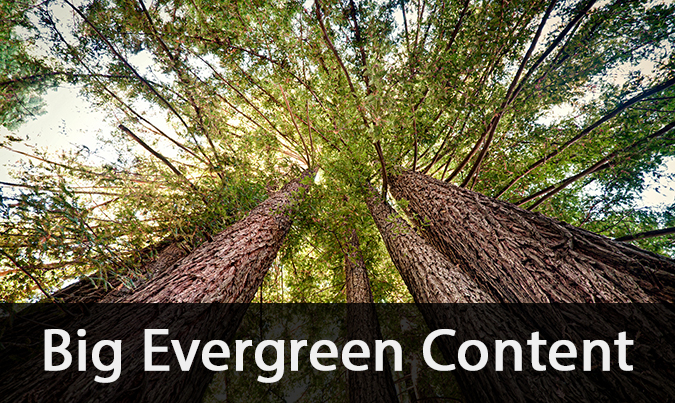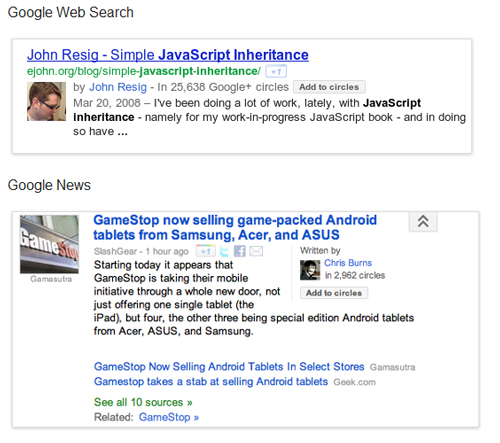Communities are your best social media tool when starting a business.
Stop shouting into a void and start communicating; they are a great way to engage with potential customers, investors and brand advocates.
Offline networking is still a powerful tool but online communities can give you a global reach and are often more time and cost effective for your limited resources.
In this post you'll find out why communities are so vital and how you can start using them.

To learn more about using social media & communities to grow your business and engage with consumers and influencers, come on our Social Media workshops and Blogging courses. Together they will give you a powerful toolset to boost your brand online.
Why It's Important
You've started new business with a new idea. How do you get people to care?
You could spend money on advertising, but it would have to be a very good campaign to convince prospective buyers to take interest in a company they've never heard of.
Social proof is a strong selling point; it's not surprising why social media platforms are trying to take advantage of it with social ads (your friend X like our product) and why consumers are so protective of how their actions are used as social proof.
Recommendations are most valuable when they come naturally. It's easy to tell the difference between a genuine review and one prompted by a promotion or giveaway.
If you can create a community around your business or convince an existing community to take notice of your business then they will do a lot of the hard work for you, giving you the initial investment that you can later use on advertising to grow outside of the community.
Craig Charley
21 Jan 2014
New SEO Course - Advanced SEO Training for Managers. The best SEO course you'll attend in 2014.
Could your business survive a manual or algorithmic Google penalty? That's the most important question for SEOs in 2014.
Over the past two years we have seen the number and frequency of algorithm updates and manual penalties increase as Google's Webmaster Spam team gets better at identifying tactics. This only looks set to continue over the next two years.
So how can you adjust your tactics to get results without risking everything?*

In this post I'm going to run through an SEO strategy that meets Google's Webmaster Guidelines, takes advantage of new and developing technologies and diversifies your traffic sources so that you're not so heavily reliant on Google search traffic.
If you're completely stuck with SEO or unsure you're going about it the right way then you can learn everything in this post on our hands-on, workshop-style SEO training courses.
I've included tips for content, link building, technical, offline, local, social and mobile considerations to create an overall picture of what search engines see as a 'good' site and help you give your SEO strategy a makeover for 2014.
Craig Charley
2 Dec 2013
In 2013, most businesses realise the importance of content. That's why so many SEO agencies are repositioning themselves as content agencies, or at least offering it as a primary product. Our Content Marketing courses used to attract mainly bloggers, but since the Panda and Penguin Google updates we have seen a large increase in SEOs wanting to learn about content.
Yet this mass conversion to content brings up some issues - there is too much noise. Most businesses are still stuck in an outdated content strategy - regular, mediocre quality blog posts with little intent. The content is happening, but is it working?
With content at the forefront of so many marketing strategies, it seems at first glance that big businesses have a massive advantage. Whole in-house marketing teams as well as high profile agencies on hand to craft incredible content. How does a small business compete against this with a 1-3 person marketing team?

Big Evergreen Content
The idea for this post was sparked by Hannah Smith's talk at BrightonSEO 'Go Big or Go Home'(excellent write up on State of Search), which prompted me to revisit Dr. Pete's SEOmoz post at the end of last year 'Why Big Content Is Worth the Risk'. Both Hannah and Dr. Pete explain why big content is necessary and how it can help your business stand out in a very crowded world of below par blog posts:
"We all want the low-hanging fruit, but let’s be honest – the low-hanging fruit is rotten, bruised, and covered with the grubby fingerprints of all the other spoiled brats pawing at it."
The consensus of both the talk and the post is that big content takes around 40 hours to produce. Hannah compared this to an average 12 hours for 'small content' but I think that's a huge overestimation for the majority of businesses. James Carson recently alerted Twitter to the existence of a job ad for an agency looking for a Marketing Executive who for £18,000 a year had to write 25 blog posts a day. That's well over 6,000 articles a year on a range of topics, written by somebody with little knowledge about the subject and obviously no research.
With that much noise, it's important to be different to break through, and that's where big content comes in. But I'm going to go a step further and ask you to consider another element - sustainability. Another popular topic at BrightonSEO, and a common phrase in marketing blogs at the moment is Evergreen Content.
In the rest of this post I'm going to try and convince you why your content should be both big and evergreen for the holy grail of content marketing.
Craig Charley
22 Apr 2013
In 2013, most businesses realise the importance of content. That's why so many SEO agencies are repositioning themselves as content agencies, or at least offering it as a primary product. Our Content Marketing courses used to attract mainly bloggers, but since the Panda and Penguin Google updates we have seen a large increase in SEOs wanting to learn about content.
Yet this mass conversion to content brings up some issues - there is too much noise. Most businesses are still stuck in an outdated content strategy - regular, mediocre quality blog posts with little intent. The content is happening, but is it working?
With content at the forefront of so many marketing strategies, it seems at first glance that big businesses have a massive advantage. Whole in-house marketing teams as well as high profile agencies on hand to craft incredible content. How does a small business compete against this with a 1-3 person marketing team?

Big Evergreen Content
The idea for this post was sparked by Hannah Smith's talk at BrightonSEO 'Go Big or Go Home'(excellent write up on State of Search), which prompted me to revisit Dr. Pete's SEOmoz post at the end of last year 'Why Big Content Is Worth the Risk'. Both Hannah and Dr. Pete explain why big content is necessary and how it can help your business stand out in a very crowded world of below par blog posts:
"We all want the low-hanging fruit, but let’s be honest – the low-hanging fruit is rotten, bruised, and covered with the grubby fingerprints of all the other spoiled brats pawing at it."
The consensus of both the talk and the post is that big content takes around 40 hours to produce. Hannah compared this to an average 12 hours for 'small content' but I think that's a huge overestimation for the majority of businesses. James Carson recently alerted Twitter to the existence of a job ad for an agency looking for a Marketing Executive who for £18,000 a year had to write 25 blog posts a day. That's well over 6,000 articles a year on a range of topics, written by somebody with little knowledge about the subject and obviously no research.
With that much noise, it's important to be different to break through, and that's where big content comes in. But I'm going to go a step further and ask you to consider another element - sustainability. Another popular topic at BrightonSEO, and a common phrase in marketing blogs at the moment is Evergreen Content.
In the rest of this post I'm going to try and convince you why your content should be both big and evergreen for the holy grail of content marketing.
Craig Charley
22 Apr 2013
Last night Facebook announced Facebook Graph Search, putting to rest the many rumours surrounding the cryptic launch event in Los Angeles.
These rumours included Facebook Mobile & an external search engine, but the most popular rumour turned out to be spot on - Facebook has radically overhauled their internal search function in a move that should frighten other social networks, traditional search engines and privacy advocates alike.

There are already tons of posts about the new search function and very few people have access yet (you can sign up for beta here), so instead we are going to focus on how brands (and individuals) can optimise to appear higher and more frequently in search results. One of those lucky few to get early access was Danny Sullivan at Search Engine Land, so head over there for a full run down of how Facebook Graph Search works.
It's very interesting that Facebook is the first social network to bring out a search engine like this. On our SEO courses and social media workshops we emphasise how you can use social media to help rank better in search engines, maybe now we'll have to include a section on using SEO to rank better in social networks!
How Does Visibility Work with Facebook Graph Search?
| Mark Zuckerberg may claim that Graph Search isn't a direct competitor to Google, but it's still a search engine and so there will always be ways to rank higher. Facebook have managed to produce something that Google have been working on for a while - an Internet of Things. Instead of a database of web pages, they have a database of information on things - likes, photos, businesses, people, jobs, locations and many more - and can distinguish between these items. |  |
Your visibility rests on how your business is connected to searchers - the more of their friends have connected with you, the more visible you are in their search results. But this can be just one of many factors affecting your visibility, including:
- Total number of likes
- Total number of check-ins
- The level of engagement on your page
- How often people talk about your business
- The frequency that people check in/ engage
- The recency of check-ins/ engagement
- Your location
- Your potential reach (are your likes/check-ins just local or are people coming from further afield?)
There are likely to be many more I haven't thought of, and the impact of each is determined by the type of search performed.
If a searcher is looking for businesses their friends like, then that will be the major factor. If they're looking for businesses in their area then total likes and of course location will have more of an impact.
But it's not just friends! You can search using an overwhelming number of factors. My favourite example of this is again from Danny Sullivan - "Search for Restaurants run by employees of a particular cooking school". So it's not just about number of connections, but about the type and value of those connections.
Craig Charley
16 Jan 2013
Last night Facebook announced Facebook Graph Search, putting to rest the many rumours surrounding the cryptic launch event in Los Angeles.
These rumours included Facebook Mobile & an external search engine, but the most popular rumour turned out to be spot on - Facebook has radically overhauled their internal search function in a move that should frighten other social networks, traditional search engines and privacy advocates alike.

There are already tons of posts about the new search function and very few people have access yet (you can sign up for beta here), so instead we are going to focus on how brands (and individuals) can optimise to appear higher and more frequently in search results. One of those lucky few to get early access was Danny Sullivan at Search Engine Land, so head over there for a full run down of how Facebook Graph Search works.
It's very interesting that Facebook is the first social network to bring out a search engine like this. On our SEO courses and social media workshops we emphasise how you can use social media to help rank better in search engines, maybe now we'll have to include a section on using SEO to rank better in social networks!
How Does Visibility Work with Facebook Graph Search?
| Mark Zuckerberg may claim that Graph Search isn't a direct competitor to Google, but it's still a search engine and so there will always be ways to rank higher. Facebook have managed to produce something that Google have been working on for a while - an Internet of Things. Instead of a database of web pages, they have a database of information on things - likes, photos, businesses, people, jobs, locations and many more - and can distinguish between these items. |  |
Your visibility rests on how your business is connected to searchers - the more of their friends have connected with you, the more visible you are in their search results. But this can be just one of many factors affecting your visibility, including:
- Total number of likes
- Total number of check-ins
- The level of engagement on your page
- How often people talk about your business
- The frequency that people check in/ engage
- The recency of check-ins/ engagement
- Your location
- Your potential reach (are your likes/check-ins just local or are people coming from further afield?)
There are likely to be many more I haven't thought of, and the impact of each is determined by the type of search performed.
If a searcher is looking for businesses their friends like, then that will be the major factor. If they're looking for businesses in their area then total likes and of course location will have more of an impact.
But it's not just friends! You can search using an overwhelming number of factors. My favourite example of this is again from Danny Sullivan - "Search for Restaurants run by employees of a particular cooking school". So it's not just about number of connections, but about the type and value of those connections.
Craig Charley
16 Jan 2013
UPDATE JULY 2014: Google has now withrawn authorship photos from SERPs. We still recommend implementing authorship as results will still have a byline and your content will rank better for your Google+ connections.
Google have just announced that they are going to start showing author information in search results. This is great for author awareness and can help Google raise the rankings of pages written by authority figures. It is also great for SEO's who are worried that al the great content they are writing is getting ripped off or assigned to the wrong author!
Even better, Google are replacing 'rel=author' and 'rel=me' tags and are instead automatically linking your Google+ profile to content you have written. All you have to do now is add the URLs of the sites you write for to your Google+ profile, and then when scanning those sites, Google will attribute any posts with your author name to you. Then when those posts appear in search results they will come with a 'Written by' box including a link to your G+ page. It should end up looking like this:

So why the need for this new change when Google first announced author tags last year?
Aaron Charlie
13 Jan 2012
UPDATE JULY 2014: Google has now withrawn authorship photos from SERPs. We still recommend implementing authorship as results will still have a byline and your content will rank better for your Google+ connections.
Google have just announced that they are going to start showing author information in search results. This is great for author awareness and can help Google raise the rankings of pages written by authority figures. It is also great for SEO's who are worried that al the great content they are writing is getting ripped off or assigned to the wrong author!
Even better, Google are replacing 'rel=author' and 'rel=me' tags and are instead automatically linking your Google+ profile to content you have written. All you have to do now is add the URLs of the sites you write for to your Google+ profile, and then when scanning those sites, Google will attribute any posts with your author name to you. Then when those posts appear in search results they will come with a 'Written by' box including a link to your G+ page. It should end up looking like this:

So why the need for this new change when Google first announced author tags last year?
Aaron Charlie
13 Jan 2012